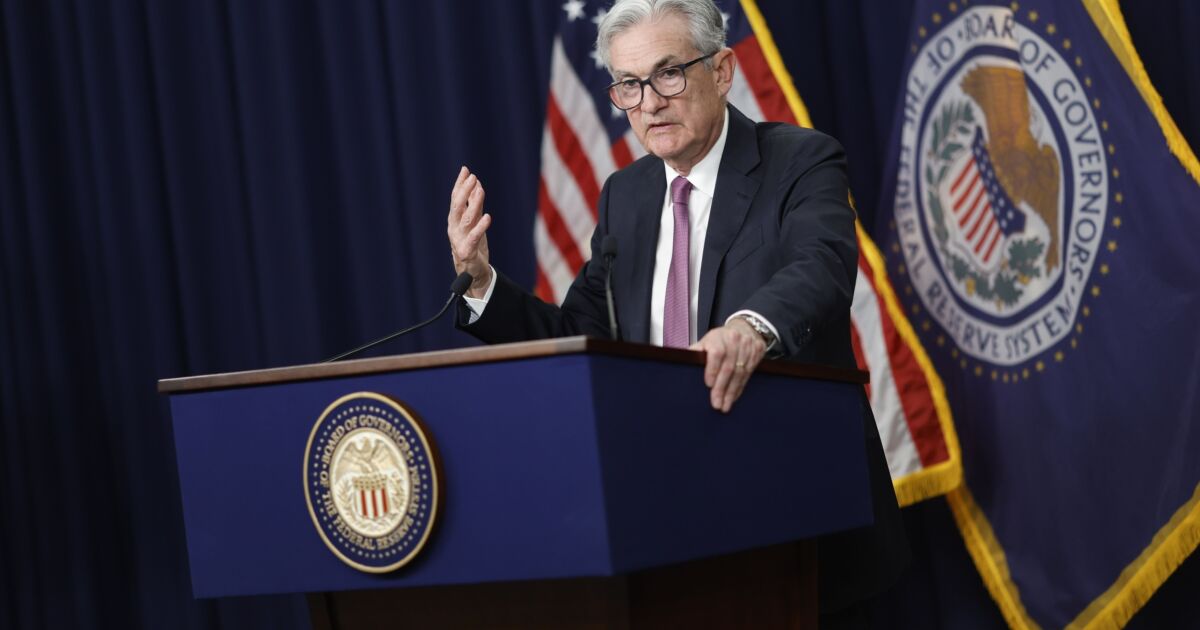
WASHINGTON — Federal Reserve Board Chair Jerome Powell said the central bank has made regulatory mistakes on his watch and he holds himself accountable for addressing them.
"I've been chairing the board for five-plus years now, and I fully recognize that we made mistakes," Powell said, nodding to the three banks that have failed during the past two months. "I think we've learned some new things as well, and we need to do better."
Powell addressed the failures and last week's report from Vice Chair for Supervision Michael Barr on the Fed's own supervisory shortcomings during his post Federal Open Market Committee press conference on Wednesday afternoon.
Powell said he played no role in compiling Barr's report, but its findings were "persuasive." He said he fully agreed with the conclusions that regulatory policy and supervisory practices at the central bank were insufficient, and added that he would support whatever changes are needed to address those shortcomings.
"What our job is now is to identify those things and implement them, and that's kind of the only thing I care about," Powell said. "I feel like I am accountable for doing everything we can to make sure that that happens."
The resolution of First Republic Bank, which was seized by the Federal Deposit Insurance Corp. and sold to JPMorgan over the weekend, "draws a line under" the period of severe stress related to the ongoing banking crisis, Powell said. He noted that the three most impacted banks — Silicon Valley Bank, Signature Bank and First Republic — have all been dealt with.
Moving forward, he said, the Fed will monitor credit standards at small and medium-size banks to determine how much the crisis will impact the availability to households. Previously, Powell said the resulting tightening had the cumulative impact of a roughly 25 basis point increase to the Fed's funds rate, but he said it was impossible to determine with precision.
Powell did not offer specific policy recommendations in response to the report, saying that Barr will take the lead on that effort.
During the press conference, Powell explained his relationship with the vice chair for supervision, a position created by the Dodd-Frank Act of 2010 to be the Fed's point person on matters of regulation. Powell said it has not been a matter of "complete deference" to Barr or his predecessor Randal Quarles, noting that he will share his view on matters. But, ultimately, the person in that position gets to set the agenda and has "sole authority" over supervision.
"I respect the authority that Congress has conferred on that person, including working with Vice Chair Barr and his predecessor," Powell said. "I think that's the way it's supposed to work, and that's appropriate. I believe that's what the law requires."
In the wake of the failures, Quarles and the regulatory tailoring policies enacted on his watch have borne the brunt of the blame for the current bank crisis, specifically the decision to not apply stricter oversight to banks with between $100 billion and $250 billion of assets.
When asked whether he had any regrets about policy choices the Fed has made under his tenure as chair in light of the recent bank failures, Powell said, "I have a few." But he added that he is focused on what lies ahead.
"What we control now is: make a fair assessment, learn the right lessons, figure out what the fixes are and implement them," he said. "Vice Chair Barr's report is an excellent first step in that, but we've got to follow through."
The Fed increased its benchmark interest rate by a quarter percentage point during the meeting, its tenth hike in as many meetings. The target range for the federal funds rate now stands between 5% and 5.25%.
Powell indicated that the Fed would pause rate hikes going forward to allow time for the economy to fully absorb the fastest tightening of monetary policy in more than 30 years. The agency began raising the rates from zero last March and at one point implemented four 75 basis point hikes in a row.
For several months, some economists and analysts have urged the Fed to temper its aggressive rate-hiking campaign over concerns about financial stability. Many of those observers see the failure of Silicon Valley Bank — an outcome driven, in part, by the bank's inability to hedge its interest rate risk exposures — as a sign that the pockets of the banking system had reached a breaking point.
The Fed does not see it that way. Even after the failure of First Republic, the committee noted that the U.S. banking industry is "sound and resilient."



